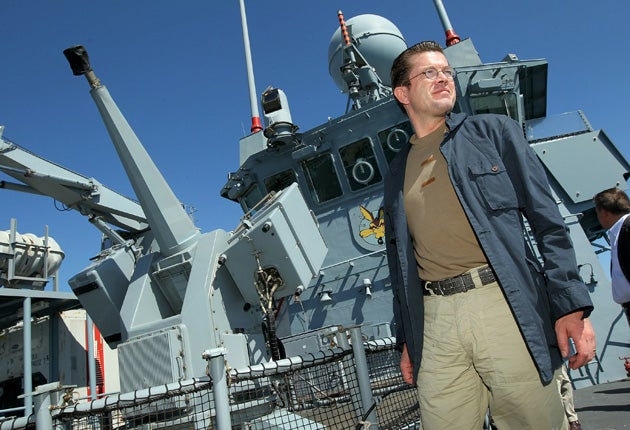German Defence Minister questions role of Nato in Afghanistan war

Your support helps us to tell the story
From reproductive rights to climate change to Big Tech, The Independent is on the ground when the story is developing. Whether it's investigating the financials of Elon Musk's pro-Trump PAC or producing our latest documentary, 'The A Word', which shines a light on the American women fighting for reproductive rights, we know how important it is to parse out the facts from the messaging.
At such a critical moment in US history, we need reporters on the ground. Your donation allows us to keep sending journalists to speak to both sides of the story.
The Independent is trusted by Americans across the entire political spectrum. And unlike many other quality news outlets, we choose not to lock Americans out of our reporting and analysis with paywalls. We believe quality journalism should be available to everyone, paid for by those who can afford it.
Your support makes all the difference.Germany is arguing for the aims of Nato's operations in Afghanistan to be significantly scaled down and wants the alliance to adopt criteria to ensure that it never commits itself to a similarly open-ended mission in future.
This was the message conveyed by the German Defence Minister, Karl-Theodor zu Guttenberg, during a lecture at a London think-tank yesterday.
He was speaking after two days of talks with British officials, at a time when operations in Afghanistan are at a crucial juncture and the alliance is engaged in a comprehensive review of its future.
In his remarks on Afghanistan, Dr zu Guttenberg, who is a key member of Angela Merkel's government and one of Germany's most popular politicians, spoke of the difficulties of "selling" the Afghan mission to a sceptical German public, a problem he noted was common to governments throughout the alliance. But in calling for strict criteria to govern Nato missions, he drew lessons from the Afghanistan experience and effectively called into question the wisdom of the whole project.
He set out four criteria, which – he said – should have to be met before Nato embarked on any military operation. First, action should be taken only if there is "great and imminent danger to another Nato member".
Second, there had to be "a clearly defined political goal". Third, an alliance military campaign should be mounted "only if there is no alternative", and finally, Nato should act "only if the capability for success was provided from the beginning". Arguably, none of these criteria were met when the Afghan operation was designated a Nato mission.
Elsewhere in his address, Dr zu Guttenberg spoke of the need for "commitment to match capability" and for the national security of alliance members and the collective security of the alliance always to be paramount in decision-making.
Dr zu Guttenberg's call for the goals of the Afghan operation to be revised downwards is likely to receive a favourable reception among many members of the alliance, including Canada and Poland, which are withdrawing their forces from Afghanistan. But it could put Germany on a collision course with the British army, which has argued that the sort of counter-insurgency war being fought in Afghanistan is the shape of the future. It is using this argument to justify maintaining the strength, and funding, in the run-up to the Strategic Defence Review this autumn.
With the Chief of the Defence Staff, Sir Jock Stirrup, informed that he will be retiring after the review, however, and every government department facing swingeing cuts, it appears no option has been ruled out.
Subscribe to Independent Premium to bookmark this article
Want to bookmark your favourite articles and stories to read or reference later? Start your Independent Premium subscription today.
Join our commenting forum
Join thought-provoking conversations, follow other Independent readers and see their replies
Comments